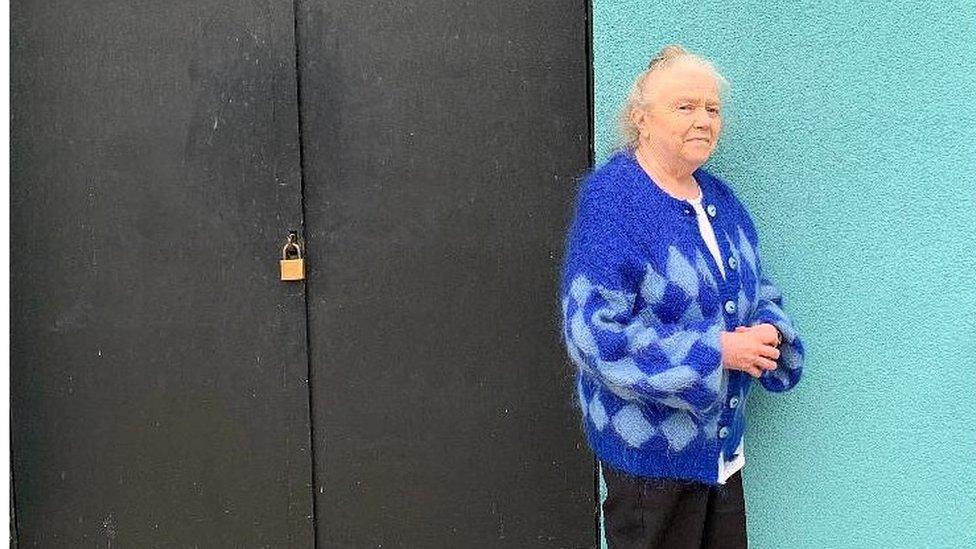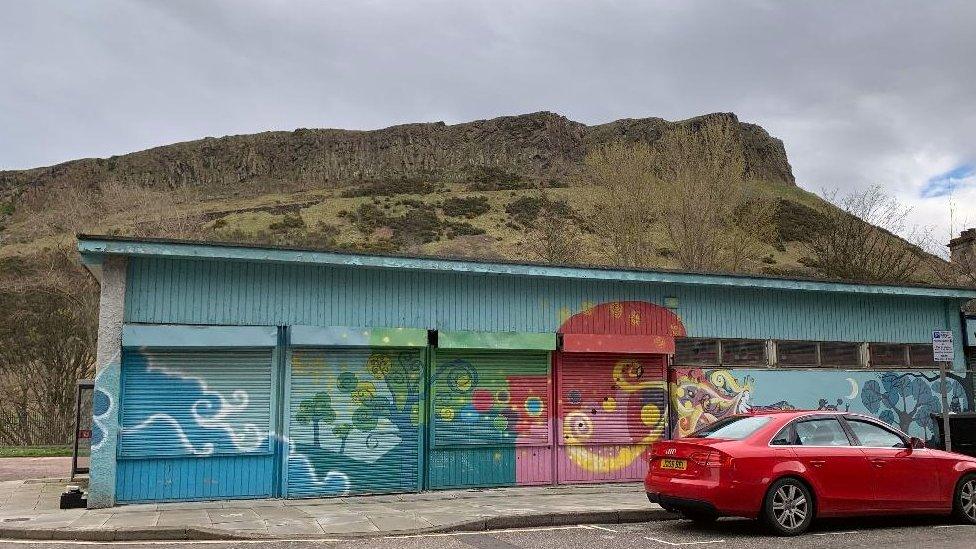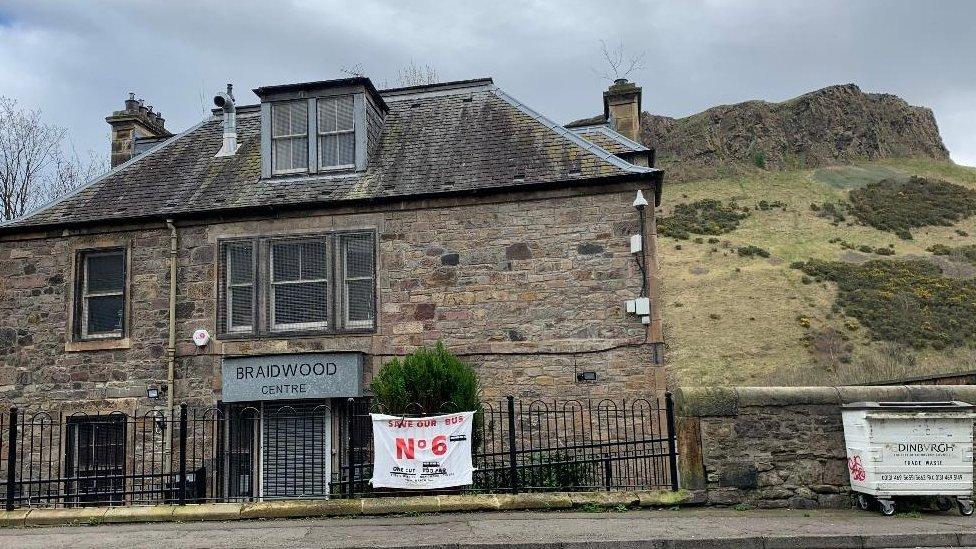Coronavirus: ‘We feel forgotten about here’
- Published

Agnes Logan says she has been watching Dumbiedykes deteriorate for decades.
The 82-year-old moved into the compact strips of council-built flats in the shadow of Arthur's Seat in 1970.
The retired school cleaner thought the final straw had been the removal of a bus service which stopped at the edge of the estate, which is near to the Royal Mile.
But then coronavirus arrived and saw the Edinburgh Council-owned Lothian Buses move to an emergency timetable.
This has, temporarily, removed the only other viable bus route for people living on the estate, which was still a 10-minute walk away for Agnes.
"It used to be called public transport, but it doesn't feel like it is very public to me, and I know we can't be the only ones," she explains.
"It seems mad that I am saying this and I live in the centre of Scotland's capital city. I can't think what people in the countryside have to deal with."
'That awful hill'
Dumbiedykes has about 600 homes but no shop, GP surgery, pharmacy or post office.
It is relatively close to these amenities in neighbouring areas as the crow flies but there's a catch. "Everything useful is up that awful hill," explains Agnes.
She continues: "We're lucky to have the free bus pass in Scotland but I've not used mine for weeks and I know there's many like me on the estate, and not just the elderly - we feel forgotten about."
Agnes, who is now reliant on her children bringing her shopping to her, said Dumbiedykes was a "good community" but had "just deteriorated" with the impact of the bus cuts and now coronavirus "speeding that up".

The last retail shop in Dumbiedykes used to be in this now abandoned unit overlooked by Arthur's seat
Many of those who have nobody to rely on are turning to the Helping Hands community group, which helps some of the most vulnerable people in the city.
The group's co-founder Jim Slaven, who is also chairman of Dumbiedykes Residents Association said: "The people we speak to on the estate, the people we help, they feel abandoned and this virus has just made things ten times worse.
"How can it be that a settled community of around 600 homes in the centre of a major city now has no public transport links and no shops."

The local community centre had been the focus of efforts to save the now defunct number six service which served Dumbiedykes
Mr Slaven said Helping Hands, which receives no public money and runs sport and welfare initiatives in all of Edinburgh's poorest areas, is seeing a new range of people turning to them for support.
He said: "There's a lot of people who have never had to turn to anyone for help that now need it, maybe bar workers or folk with causal work that's dried up overnight because of coronavirus."
A spokeswoman for Lothian Buses said it stopped the service that stopped closest to Dumbiedykes because it was losing money and had "very low levels of customer demand".
She added that the company had seen its passenger numbers drop by 90% in the wake of the coronavirus outbreak and had to make "very difficult decisions" in curtailing other routes.